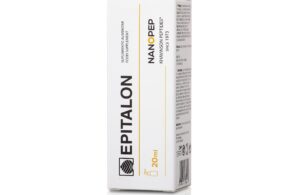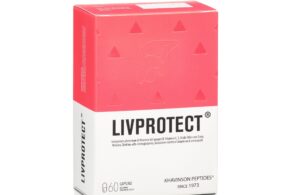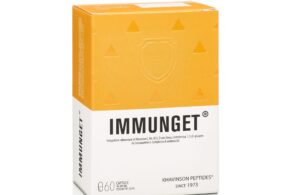Peptide Bioregulators Promote Active and Functional Longevity
- Discovery of peptide regulation of ageing
- Peptide Bioregulators Initiate a Crucial Process Altered by Age: Protein Synthesis
- Human Studies with Peptide Bioregulators
- Conclusion
Why do some people live up to the 100, and even 120 years old, while others die younger? This is one question that has been on the minds of medical experts and regular individuals alike. Over the years, telomerase (telomere activators), antioxidants, and caloric restrictions have been on the list of therapeutic agents linked to longevity.
Recently, results gathered from over 40 years of research have revealed the lifespan-extending characteristic of peptide bioregulators. These short chains of amino acids can alter the changes that cause ageing and degenerative diseases like Alzheimer’s, arthritis, atherosclerosis, type 2 diabetes, osteoporosis, and hypertension. Their anti-ageing effects stem from their ability to bind to certain parts of the gene’s DNA to regulate and kick-start the repair and rejuvenation of cells and tissues and organ function that have been subjected to age-related deterioration.
In this article, we shed light on the rejuvenating potential of peptides and their mechanism of action. We will also explore peptide-based products that can help improve physiological function, eliminate ageing signs, and ultimately increase life span.
Discovery of peptide regulation of ageing
Generally, the human life span ought to be longer than it is nowadays. In-depth studies show that it should be higher by approximately 30%-40%. Going by this stat, the average individual’s life expectancy is expected to range from 110 to 120 years. However, it is truncated by adverse factors such as stress, radiation, and environmental factors which alter gene activation (expression), structure, and protein synthesis.
These occurrences lead to the involution of tissues, and cells which introduces the physical signs of ageing, deterioration of system function, the introduction of age-related diseases, and death eventually.
The journey to discovering peptide regulation of ageing began at the end of the nineteenth century when Metchnikov demonstrated that boosting cellular immunity increases life span. Fast-forward one century, Peter Doherty and Rolf Zinkernagel contributed to the field through their in-depth study of the specificity of cellular immunity in case of viral infection. This collection of findings led Prof. Vladimir Khavinson, and his team to explore a whole new concept of small peptides – their regulating roles, and their impact on gene control of protein synthesis in higher organisms.
Khavinson worked towards restoring functions of the pineal gland, thymus, and other organs after discovering that their degradation over time contributes to the shortening of human and animal life span. To do this, he and his team developed a unique method of identifying and isolating short peptides from extracts of related organs (thymus, the pineal gland, etc.) Their peptide preparations proved successful in numerous experiments, as they increased the mean lifespan of the animals in the trials.
Peptide Bioregulators Initiate a Crucial Process Altered by Age: Protein Synthesis
Ageing is one of the most complex aspects of biology, but its effects can be seen and felt on a surface level. On a micro level, ageing is a group of molecular and cellular changes that result in a gradual but progressive deterioration in tissue and organ function. Following the due course of nature, these changes eventually impair biological function; weaken the immune system, leave the body vulnerable to diseases; and ultimately cause death.
The ageing process is usually ushered in by a decline in protein synthesis. Thus, to reverse or at least slow down the physiological and physical signs of ageing, protein synthesis needs to be reinitiated. This is where peptide bioregulators come in.
What are bioregulators: bioregulator peptides are a class of natural compounds that have gained attention for their potential to support various biological processes and promote overall well-being. List of bioregulator peptides includes Thymus peptide (Thymalin), Pineal peptide (Epithalamin), Blood vessel peptide (Vessel Due F) and others.
About 4 decades ago, professor Khavison and his team at St. Petersburg were able to establish a correlation between small, low molecular-weight regulatory peptides and the ageing process. They observed that the peptides partake in the transfer of biological information, ultimately leading to protein synthesis – a biological process vital for life.
Based on these research findings, professor Khavison set out to find a practical way to repair and rejuvenate cells, tissues, and organs damaged by age. Down the line, he and his team devised a method to create small peptides that would initiate the crucial process altered by age. It involved isolating the particular kind of peptides needed from extracts of various animal-sourced organs.
The idea was that each peptide would interact with targeted parts of the DNA to transfer specific information to regulate particular genes in specific tissues, and ultimately stimulate protein synthesis. The concept worked; today, there are several highly safe and effective peptide-based products capable of treating a wide range of diseases, improving skin health, and slowing down the ageing process.
Human Studies with Peptide Bioregulators
For many years, experiments with peptides have been carried out on rats, monkey, and drosophila to determine if their lifespans could be stretched. Many of these experiments were met with huge success as the maximum number of years was attained in some of the involved species. For example, in one experiment conducted on rats and mice by Khavinson and his team, the animals were observed to live longer than their actual lifespan by 30%–40%. These feats make many people wonder if delivering the right peptides to humans might also reverse ageing and extend their lifespans. Over the years, countless human studies have been conducted to find out.
One of the most notable ones was the study carried out by Khavison and his team in the Soviet Union. The study involved two groups of seniors aged 60–74, and 75–89: each category had a control group. The seniors in the first age group were treated with pineal peptide for 12 years, while those in the second were treated with thymus and pineal peptides for 6 years. On the one hand, only vitamins were given to those in the control groups.
To determine the effects of the bioregulators on the different age groups, Khavison measured mortality rates, unlike in the animal trials where he directly measured the lifespans of short-lived species. He considered this approach more accurate since it was impractical to track the ages of the human participants at their deaths since the study was being carried out over decades. Thus, Khavison tracked how long the people in each of the age groups lived overall and the result?
Well, compared to the control groups, the two age categories generally had lower mortality rates. They equally demonstrated increased bone density, improved endocrine, brain, cardiovascular, and immune functions, as well as more youthful nocturnal melatonin levels.
Statistically speaking, the seniors within the age range of 60–74 had a mortality rate of 22% lower than that of the control group. On the one hand, those within the 75–89 age group demonstrated a 33% decrease in the mortality rate than the control group, which was as high as 82%. Based on these findings, it is safe to say that bioregulators peptide are safe for humans and can improve physiological function, prevent age-related diseases, and boost longevity.
Conclusion
After over 4 decades of studying peptides and their benefits on the human body, impressive results have been achieved. Beyond their effectiveness in treating a wide range of age-related diseases and improving skin health, they have also been found to be very safe. These low-weight therapeutic agents work by attaching themselves to strategic parts of the gene’s DNA, initiating protein synthesis, and repair organs damaged from age.
Peptide bioregulators have demonstrated that long-term treatment with some of them could reverse the effects of ageing and ultimately increase mean lifespan by 20–40%.
Today, due to their high safety profile, and ability to target specific diseased organ sites, these biologically active, short chains of amino acids are now regarded as new-generation therapeutic agents. A whole new category of healthcare products such as Epitalon spray, Livprotect, Immunget and many others are now based on them (peptide bioregulators). Many of these products reverse both the physical and physiological signs of ageing.
Although it has been established that peptide oral bioregulators promote active and functional longevity, more studies need to be conducted to utilise them better. For example, while the molecules out-perform many traditional medications in terms of posing a minimal risk of side effects, some of them can not be administered orally. This is due to their inability to survive gastrointestinal degradation (GI) and fulfil their therapeutic objectives.
Fortunately, there have been breakthroughs, such as EPFL’s newly discovered method of preparing peptides that can survive the GI and treat diseases in highly-targeted areas of the body. Hopefully, in the near future, humans will live long enough to become supercentenarians (110 years old and above) without suffering from any age-related disease. Perhaps, everyone will be able to live up the age of 122 effortlessly, just as Jeanne Louise Calment of France. Can this be achieved in the next 5, 10 or 15 years? Only time will tell.
Now you know what are peptide bioregulators and how they can help. These peptides can be used to support the health of specific organs, such as the thymus, pineal gland, liver, heart, or immune system, among others. They are believed to help optimize the function of these organs, potentially improving their efficiency, resilience, and overall well-being.
Peptide bioregulators are molecules that play a role in regulating various physiological processes in the body. Their contribution to promoting longevity lies in their ability to support and enhance the functions of organs and tissues. By targeting specific cellular activities, they play a role in maintaining overall health and potentially extending lifespan.
Unlike other therapeutic agents like antioxidants and caloric restrictions, peptide bioregulators operate by specifically targeting and optimizing cellular activity. Unlike antioxidants and caloric restrictions, which may have general effects, peptide bioregulators operate with precision, influencing the regulation of physiological processes in a more targeted manner.
What sets peptide bioregulators apart is their capacity to address specific age-related conditions. Research suggests that they may offer benefits in conditions such as Alzheimer’s, arthritis, and diabetes, indicating a broad spectrum of effects. However, it’s essential to note that the effectiveness of peptide bioregulators can vary depending on the individual and the specific condition.
Numerous human studies have explored the potential of peptide bioregulators in extending lifespan and improving overall health. While results are promising, it’s crucial to interpret them cautiously, as the field is still evolving. Further research is necessary to solidify understanding of the long-term effects and mechanisms of action associated with these bioregulators.















